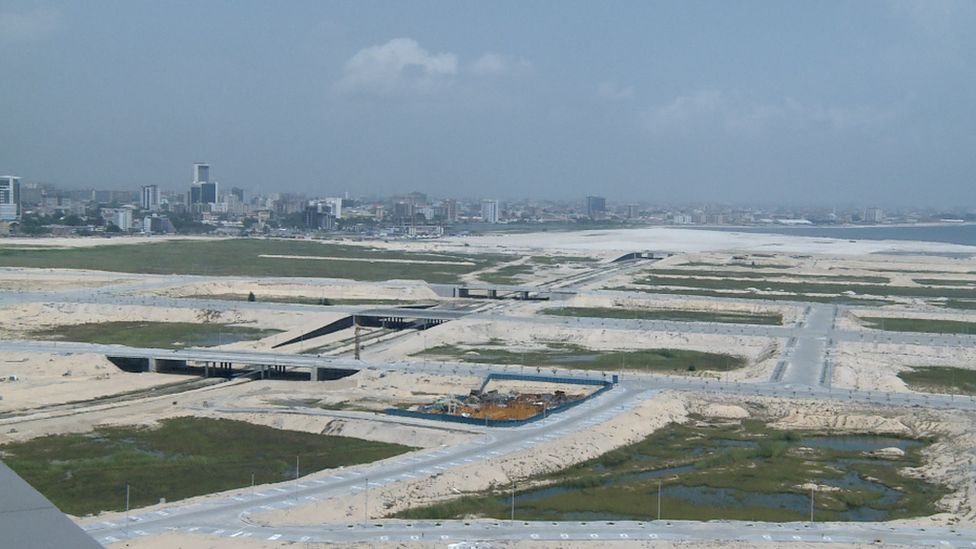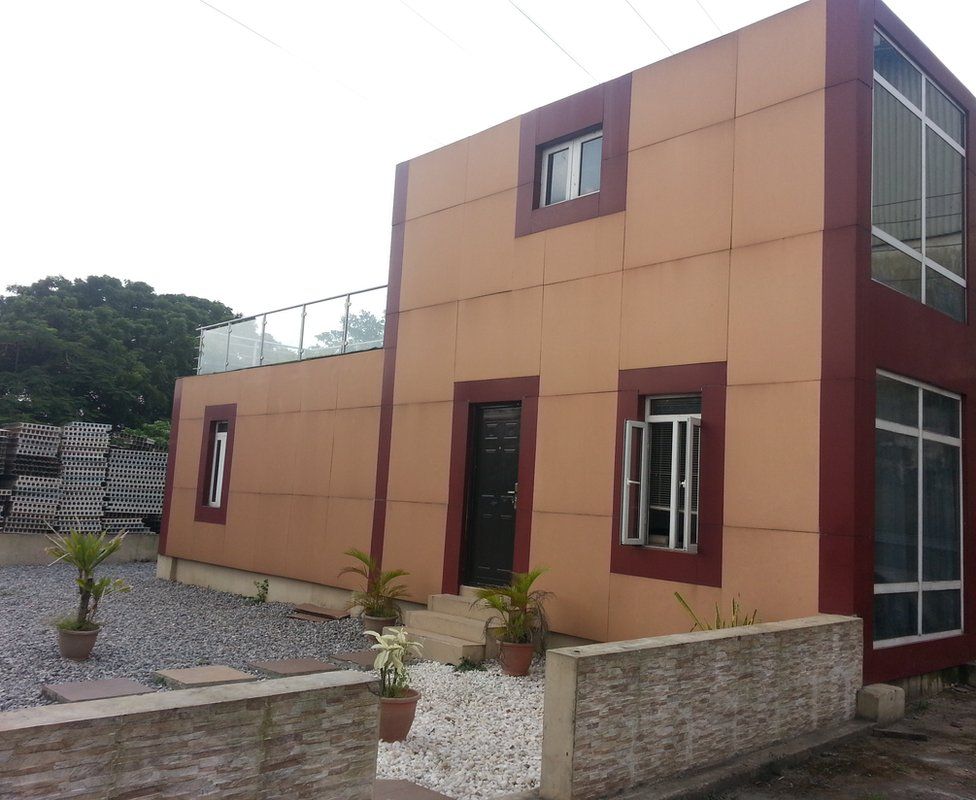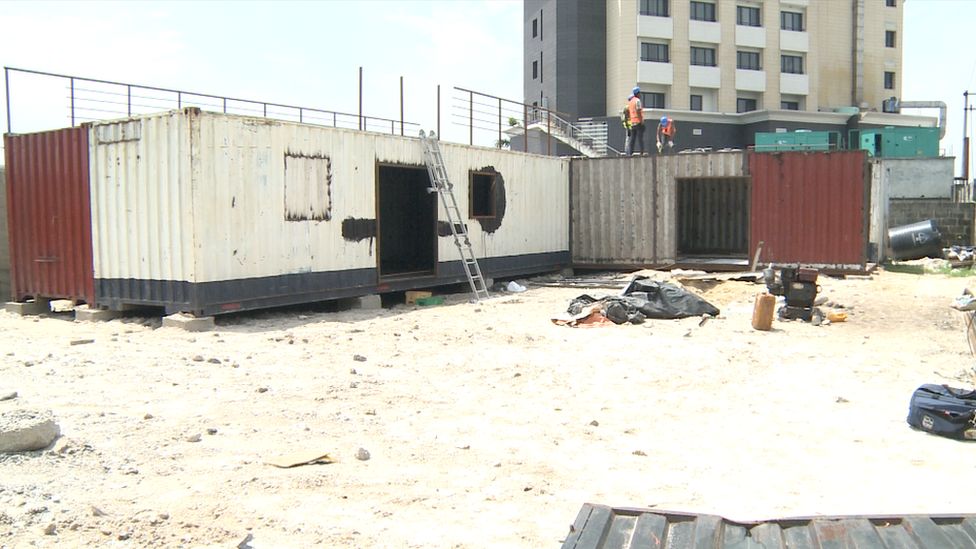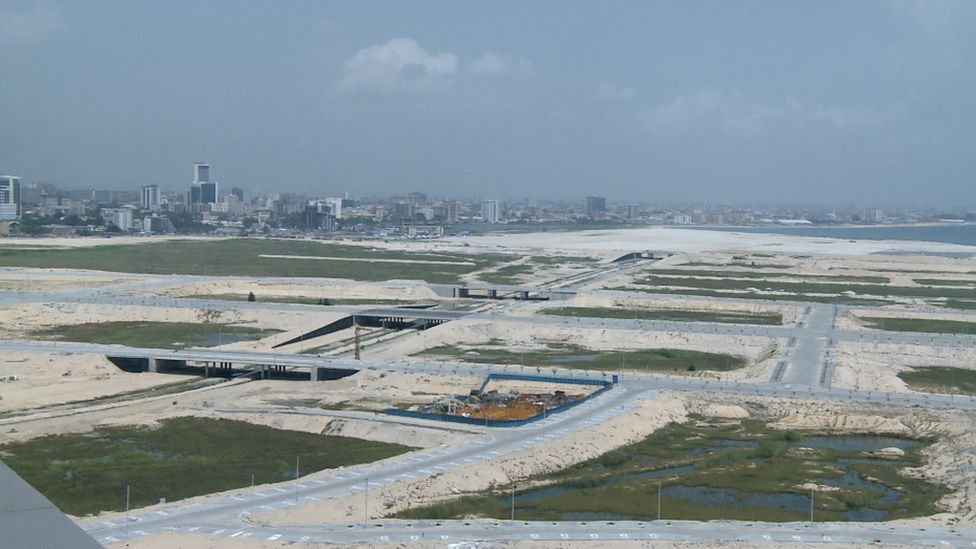Nigeria’s largest city Lagos is facing a housing crisis. The BBC’s Nancy Kacungira looks at how entrepreneurs are trying to solve the crisis.
Affordable housing is a considerable challenge for urban areas with large populations, and this is particularly prevalent in the Nigeria’s city of Lagos.
More than 500,000 people move to the city every year, and across Nigeria, there is already a housing deficit of more than 17 million units.
There are on-going projects of varying scale trying to address the shortage; one is reclaiming land from the Atlantic Ocean to build a new city suburb called Eko Atlantic on the shores of Victoria Island.
Tonnes of sand and heavy rock were poured into the ocean to provide 10 sq km (3.8 sq miles) of land for shops, offices and homes.
Protected by an 8km long sea wall, the city will have its own power and water supply, and even an independent road network.

Eko Atlantic will be able to accommodate more than 500,000 people, but the multibillion dollar project has been perceived as being “only for the rich”.
Ronald Chagoury Jr, one of the developers, says it is a perception they have been trying to shake off.
“From the beginning we always thought that this would be a city for the middle income.
“We know that the middle income has grown significantly in the past 15 years and we know that it is going to grow even more.”
‘Living with granny’
Still, some residents of Lagos feel that there are already many housing options – they just cannot afford them.
Properties are pricey and landlords typically require annual, not monthly rent payments.
Banking consultant Abimbola Agbalu tells me that he has to live at his grandmother’s house, because renting his own place would be too expensive.

“If I wanted to rent a house where I would prefer in Lagos I would be spending at least 80% of my pay cheque to move in because I would have to pay two years’ rent upfront, agency fees and maintenance fees.
“And from then on I would have to spend another 60-70% of my pay cheque every year on rent, which doesn’t make sense.
“The problem is not that there are no houses. If you look around, there are empty houses all over Lagos; some can even go a year without being rented out.
“The problem is that people can’t afford them. We need better alternatives.”
Refurbishing shipping containers
One Nigerian company is thinking inside the box in order to provide a cheaper housing option – by making homes out of cargo containers.
Dele Ijaiya-Oladipo says he co-founded Tempohousing Nigeria to provide a creative solution in a city that desperately needs low-cost housing.

“The only way we can get the housing deficit sorted is by providing good quality houses at affordable rates.
“You can’t build a million homes at a price that no-one will ever afford – that doesn’t achieve anything.”
Mr Ijaiya-Oladipo’s container homes are 25% cheaper than traditional housing, and can be built in as little as two weeks.
“But the concept is still foreign to many Nigerians; so most of his clients tend to use the containers to build office spaces, not homes,” he says.
“Until a potential client actually sees our past work, they can’t really picture how a shipping container can be used as a finished house or office.
“We have to encourage people to visit our office which is made out of containers, so they can see what we are talking about.”
From a self-sustaining city to refurbished-shipping containers, private sector real-estate developers are offering both big and small solutions – and Lagos needs them all.
The city is Africa’s largest, and its population is expected to double by 2050; putting even more pressure on already limited housing options.
Source: bbc




